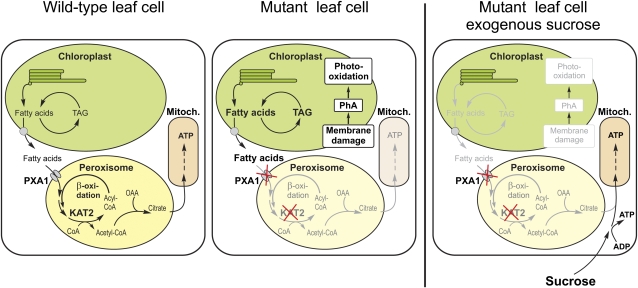Figure 8.
Cartoon Depicting the Suggested Model for Lipid Respiration in Mature Arabidopsis Leaves and Leaves of pxa1 and kat2 Mutants.
In extended darkness, plants respire fatty acids released from the chloroplast for ATP generation in mitochondria via peroxisomal β-oxidation and citrate synthesis. When import of fatty acids into peroxisomes or β-oxidation is impaired, plants accumulate high concentrations of free fatty acids leading to membrane damage, chlorophyll degradation, and other detrimental effects. Provision of an external energy source like sucrose largely prevents the necessity to respire fatty acids and, hence, accumulation of free fatty acids in mutant leaves since ATP can be generated from sucrose.
[See online article for color version of this figure.]

